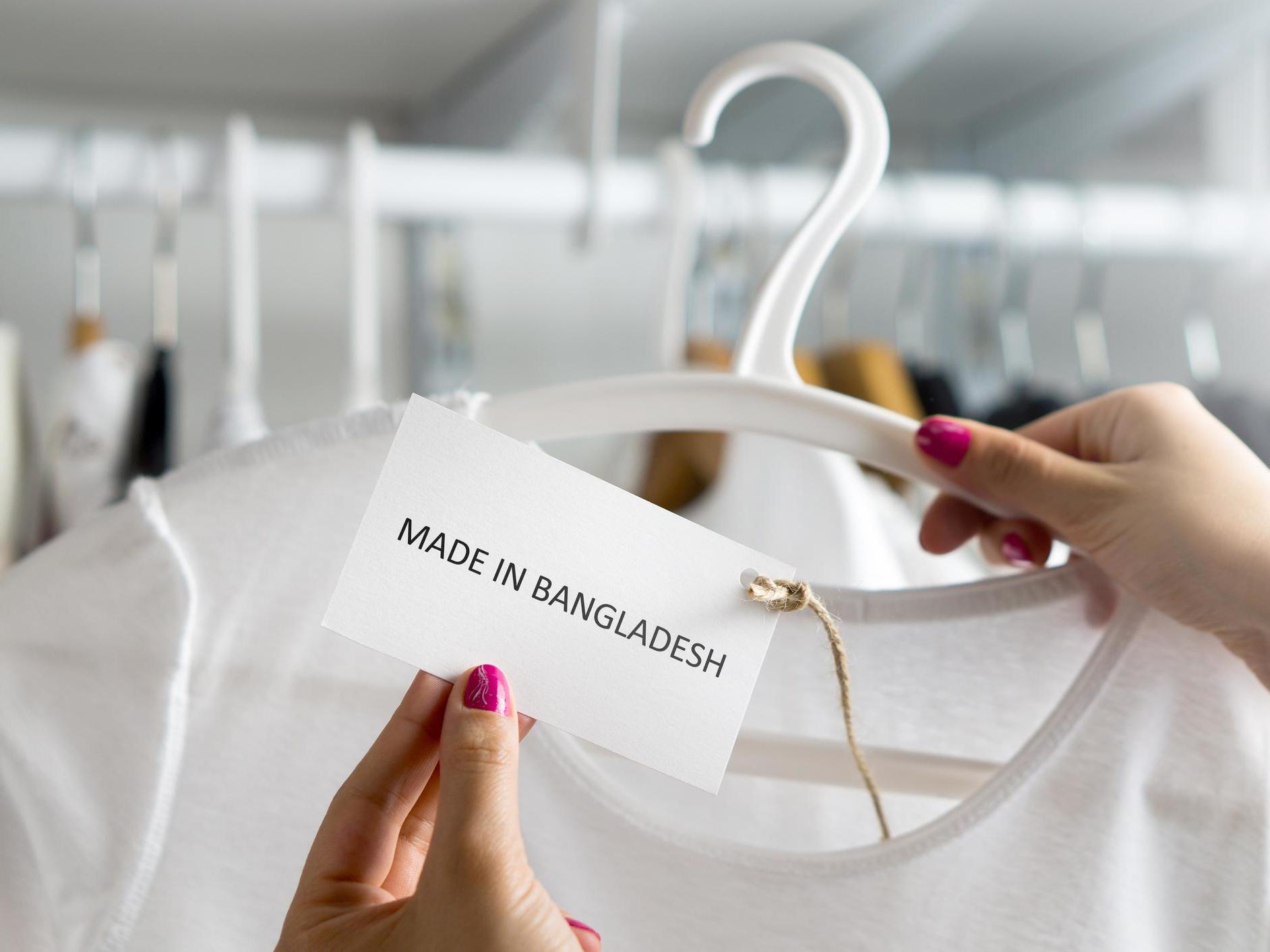If you really care about helping the coronavirus effort, don’t buy a charity ‘Stay Home’ T-shirt – here’s why
The vulnerable will suffer the most at the hands of coronavirus and that applies to the fashion supply chain too, writes Venetia La Manna

If, like me, you’re spending more time scrolling on your phone than usual, you may find yourself being targeted by fast fashion brands and bombarded by celebrities suggesting that we invest in a slogan T-shirt, with “100 per cent of profits” going to healthcare workers.
Not only does this mean that we’ll have a fresh “Lockdown Lewk” to show off on Instagram, it also means we’re able to exhibit just how well we’re sticking to government guidelines by staying indoors, and we’re letting people know that we’ve donated our precious cash to a good cause. Sounds like we’ve scored a hat-trick, right?
Not so much. There’s much more to unpack here.
First off, most of these T-shirts are produced by fast fashion brands. Many fast fashion companies are run by billionaires who have proven time and again that they prioritise their fellow people at the top while consistently failing to pay their workers a living wage.
This has come into sharp focus even more since the start of the coronavirus pandemic. Since the beginning of lockdowns, global brands have been cancelling orders and abandoning factory workers in a time of dire need. According to the Bangladesh Garment Manufacturers and Exporters Association more than a million Bangladeshi garment workers have been sent home without pay, after brands cancelled £2.4bn of existing orders in the wake of the crisis. For context: there are around 4 million garment workers in Bangladesh, many of whom are set to lose their jobs.
What’s more, the fashion industry is one of the most polluting industries in the world, meaning the production line directly contributes to the climate crisis. Most charity T-shirts on the market are made from cotton. These require many precious resources like water and soil, not to mention thousands of air-miles, to make it from the field to our doorstep and eventually adorn our torsos.
The unsettling truth about this pandemic is that it’s not the “great equaliser” Madonna described it as. It’s the most vulnerable that will suffer the most – and that applies to the fashion supply chain, too. When we buy a T-shirt, those people, not style, should be at the forefront of our minds.
We may be raising valuable money for healthcare workers, but we’re simultaneously putting the lives of the people who make our clothes at risk. This puts extra pressure on healthcare workers in other parts of the world, so we’re thereby contributing to a never-improving system.
And, the last time I checked, fashion wasn’t an essential item.
T-shirt activism shouldn’t be a substitute for actually doing the work and supporting charities long term
Of course, we don’t have to forgo charity T-shirts altogether – there’s no doubt they can be beneficial to a cause – but only if manufactured in a way that doesn’t cause direct harm to others and the planet in the process.
One person who did it the right way (I should point out, before we went into lockdown) was illustrator and disability activist Mimi Butlin. She collaborated with disability charity Leonard Cheshire. Together, they created a “Disabled Looks Like Me” T-shirt in order to: “Raise awareness of invisible disabilities and break down stereotypes of what ‘disabled’ looks like.”
Butlin told me: “As someone with an invisible disability I am aware of my privileges in it, but it also comes with its own set of challenges, often with many of us not having the severity of our conditions taken seriously by the government, medical industry and society in general. It’s also about reclaiming the word ‘disabled,’ because it’s not a bad word and it’s not something to be ashamed of.”
Together, they felt concerned about the waste element involved in creating a T-shirt, so they decided to use 100 per cent Fair Wear foundation Organic Cotton and partnered with Everpress to minimise waste, only making what they sold.
Coronavirus: London on lockdown
Show all 29Butlin notably points out that: “T-shirt activism shouldn’t be a substitute for actually doing the work and supporting the charities or causes long term. It shouldn’t be the ‘good deed’ these large companies tick off to make themselves look better, which sadly I feel it often is.”
If you absolutely love a slogan T-shirt and you know you’ll wear it for years, whether or not you click “buy” is obviously your decision, but in a time of a global health crisis, do we really need a T-shirt to make a statement?
If you really want a slogan on your tee, why not customise an existing top and donate directly to your chosen charity instead? It’s not as if we’re short on time. No more excuses: we must consider the entire supply chain and rally for the rights of the people making our clothes – now, more than ever.
Subscribe to Independent Premium to bookmark this article
Want to bookmark your favourite articles and stories to read or reference later? Start your Independent Premium subscription today.

Join our commenting forum
Join thought-provoking conversations, follow other Independent readers and see their replies